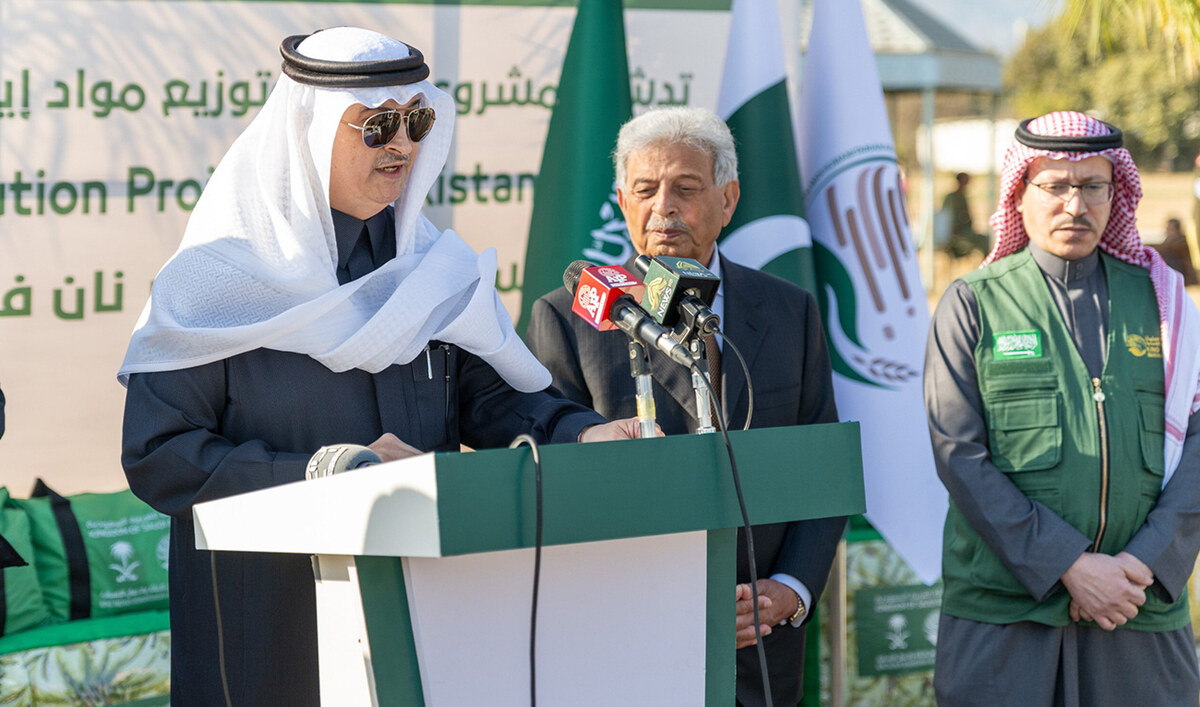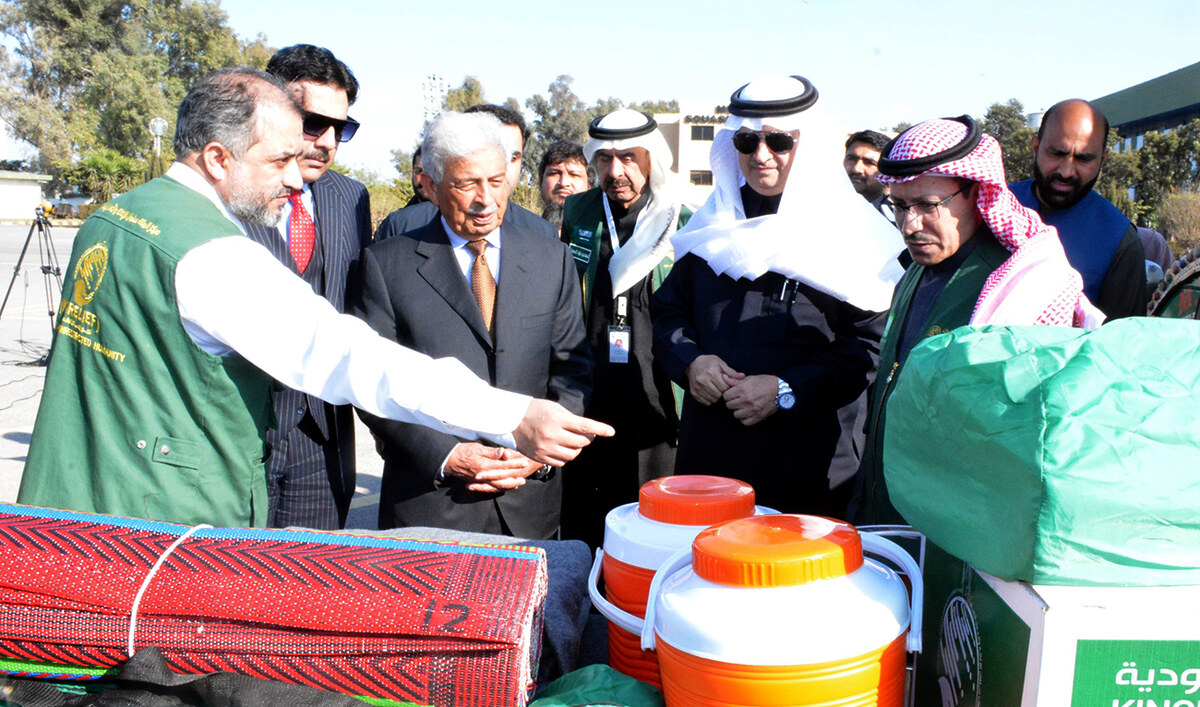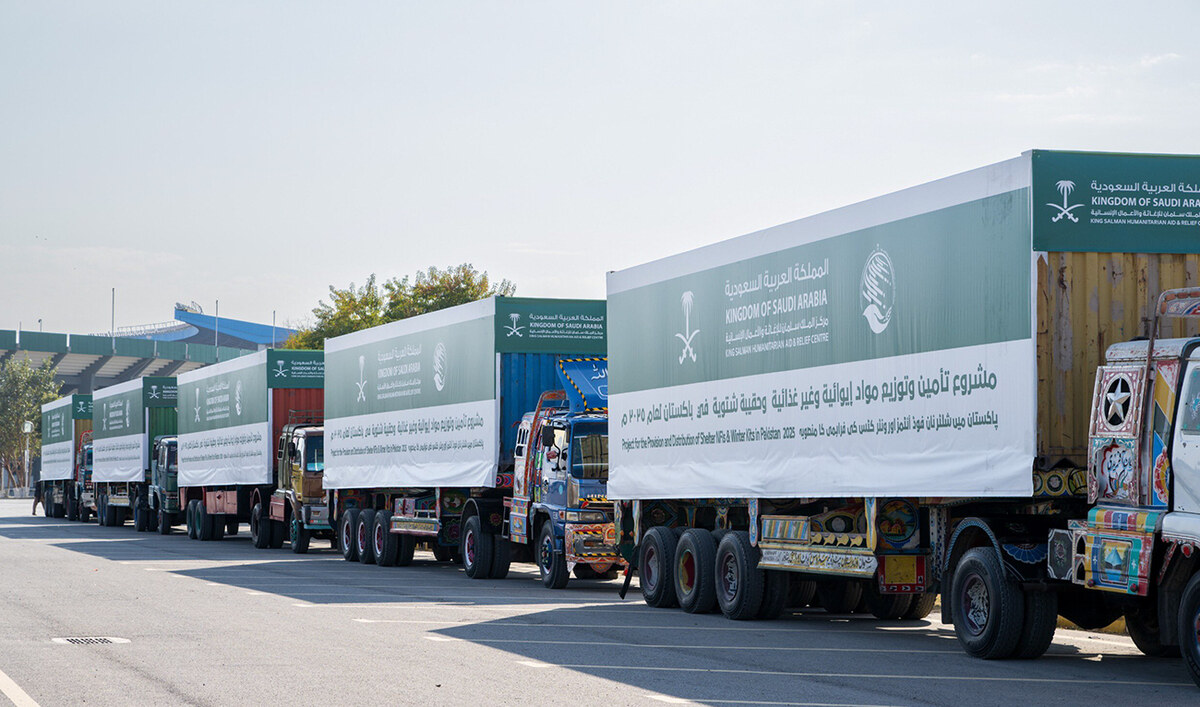ISLAMABAD: The King Salman Humanitarian Aid and Relief Center (KSrelief) on Thursday launched its 2025 project to distribute winter relief kits in Pakistan, to be distributed to needy people in all four provinces of Pakistan as well as the Gilgit-Baltistan and Azad Kashmir northern regions.Â
As part of the program, KSrelief will distributes 84,500 shelter, NFIs (non-food items), and winter kits across Pakistan as part of its annual initiative to support vulnerable communities.
âItâs my pleasure to participate in this ceremony on behalf of my country, the Kingdom of șÚÁÏÉçÇű,â Nawaf bin Said Al-Malki, Saudi ambassador to Pakistan, said at the launch ceremony.Â
âThis kit will be distributed among the needy people in all four provinces of Pakistan, including Gilgit-[Baltistan] and Azad Kashmir.â

In this handout photo, released by Saudi Embassy, Nawaf bin Said Al-Malki (left), Saudi ambassador to Pakistan, speaks during the launching ceremony of KSreliefâs 2025 winter kits project in Islamabad on January 30, 2025. (Photo courtesy: X/@KSAembassyPK)
In the first phase, KSrelief will deliver 50,000 winter kits to residents of the 50 coldest and snow-bound districts in Pakistan. Distribution will be region-specific, targeting 16,000 kits in Khyber Pakhtunkhwa (KP), 12,000 in Balochistan, 10,000 in Gilgit-Baltistan (GB), 6,000 in Azad Jammu and Kashmir (AJK), 4,000 in Sindh, and 2,000 in Punjab. These winter packages include two polyester quilts and a kit of warm shawls for both men and women, as well as warm clothing for children and adults.

In this handout photo, released by Saudi Embassy, Pakistanâs National Food Security Minister Rana Tanveer Hussain (3L), Saudi Ambassador Nawaf bin Said Al-Malki (2R) and other officials inspect packages during the launching ceremony of KSreliefâs 2025 winter kits project in Islamabad on January 30, 2025. (Photo courtesy: X/@KSAembassyPK)
The remaining 34,500 Shelter NFIs will be strategically allocated for disaster response, with distribution planned over three additional phases, set to conclude by December 2025.
To ensure transparency and effective implementation, the project will be carried out in close collaboration with key stakeholders, including the National Disaster Management Authority (NDMA), Provincial Disaster Management Authorities (PDMAs), Gilgit-Baltistan Disaster Management Authority (GBDMA), State Disaster Management Authority (SDMA), and local authorities.Â

This handout photo, released by Saudi Embassy, shows trucks, loaded with winter relief kits to distribute in Pakistan, parked during the launching ceremony of KSreliefâs 2025 winter kits project in Islamabad on January 30, 2025. (Photo courtesy: X/@KSAembassyPK)
âThe joint effort is expected to benefit over 591,500 individuals, underscoring KSreliefâs commitment to alleviating hardships and improving the well-being of those in need across Pakistan,â a statement from the humanitarian agency said.Â
Attending the ceremony, Pakistani minister for food security, Rana Tanveer Hussain, said the event marked âyet another milestone in the strong and historic ties between Pakistan and șÚÁÏÉçÇű, reflecting their shared commitment to humanitarian aid and development.â
In 2023 alone, KSrelief provided over 110 million meals globally, including a significant share for Pakistan.


















